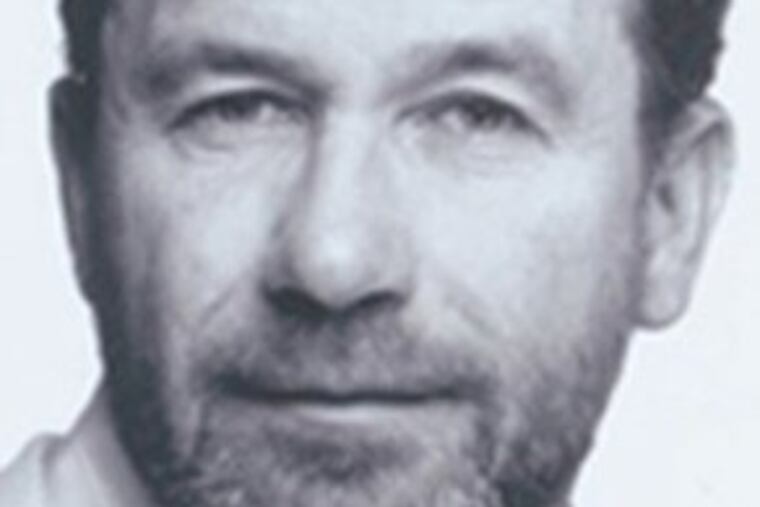Coming of age and craving Siberia
When the atmosphere around the family hearth is cold as January in Scandinavia, what can a young girl do but dream of escape? Norwegian author Per Petterson's fifth novel, sensitively translated by Anne Born, follows the breakout success in the United States and worldwide of his previous book, Out Stealing Horses.

By Per Petterson
Gray Wolf Press. 256 pp. $22
Reviewed by Helen W. Mallon
When the atmosphere around the family hearth is cold as January in Scandinavia, what can a young girl do but dream of escape? Norwegian author Per Petterson's fifth novel, sensitively translated by Anne Born, follows the breakout success in the United States and worldwide of his previous book,
Out Stealing Horses
.
To Siberia
chronicles the coming of age of the younger sister in a family characterized by poverty and the bleak beauty of a landscape where frost seems to seep in "after someone has hanged themselves or taken their life in some other way."
Set in three sections - before, during and after the Nazi occupation of Denmark in the early 1940s - the book has as its core the relationship between the protagonist and her reckless, beautiful older brother, Jesper. This is the first of many pairings that give the novel a poetic shape: two instances of near-ESP, two tender moments with domestic animals, two rescues from drowning. It is Jesper who teaches "Sistermine" - the only name she is given - to seek out moments when the ordinary world shimmers with transforming grace.
In this family, conflict remains unacknowledged. Their father "works his way downward" as a master carpenter in a town "too small" to support a professional. His stoicism conceals anger that his parents never gave him a share in the family farm.
Jesper, active and restless, throws himself into a life of adventure, defending his family in a bar fight at 14, attending meetings in support of the Loyalist cause in Spain. The more cautious Sistermine is the reflective moon to his heat-generating sun. Both children long to escape, Jesper to Morocco. When he recites the names of its towns, "in his voice they turn into magic spells." Sistermine, perhaps hoping to find warmth and inclusion in a familiarly frozen climate, dreams of Siberia, a place where the houses are "built of timber that gives off . . . warmth in summer, and when the long winter sets in, the glow stays in the logs and never fades."
Petterson's language shines in Sistermine's luminous observations, moments when the ordinary world shimmers with lyric grace. These call to mind Andrei Makine's novel
Dreams of My Russian Summers
. In Sistermine's mother's dairy shop during the Nazi occupation: "I like this early half-light . . . I dance a dance so quiet only I can understand it . . . I am 17, and my dance is so slow that nothing is lost of what is me up to this day."
Wherever he is, Jesper stirs things up. In 1943, he flees from Nazi-occupied Denmark. It is hinted that Jesper may have killed a German, but we never know for certain. While Sistermine shows fire in a confrontation with a Nazi sympathizer, her actions are often the helping gestures of an introvert. Earlier, she brings books to her brother's hideout, a shack decorated with a picture of Lenin she helped build from driftwood.
The family almost draws together under the Nazi "protectorate." While the Danish government continues to function, the occupation brings out heroism, including the rescue of the native Jews, as well as traitorous collusion, epitomized here by a character named "Gestapo Jorgenson." The children's pious mother longs for wealth "someplace behind the place where [her] hymns come from." When she plays the piano, "her high-pitched voice fills the room until the walls crack" and the family wants to scream. Yet her dynamism is revealed in confrontation with Nazi soldiers, to whom her dairy shop is "a closed oasis, they could not get past the little lady in the striped apron. I was sure they saw the flaming sword in her hands."
There is affection in this family, but it is frozen. "I loved my father and his crooked back, my father loved Jesper and all his quirky ideas" - but Jesper endures beatings at his father's hands. Sistermine's mother, whose Christianity is unhinged from reality, hopes she will become a missionary.
Escape is the only option. In the book's third and weakest section, Jesper attains his dream of going to Morocco, and Sistermine wanders. She lacks money to go to London; she ends up in Norway, waiting tables and indulging in sex with a devoted but boring suitor. She asks: "Is this where my journey is to end?" The luminous moments fade; she hasn't seen Jesper in years, and she visits Siberia only in her dreams.
The tie to home is tenuous, but real. Finally, Jesper's only letter reaches her, and one seasick journey later, Sistermine returns to Denmark, expecting to find him at her parents' house. What she encounters turns her away, presumably for good. Yet hope is implied in a subtle turn of fate.
Or perhaps
hope
is too strong a word. Endurance, then. When you cannot attain even Siberia's cold comforts, reality offers its hard consolations.